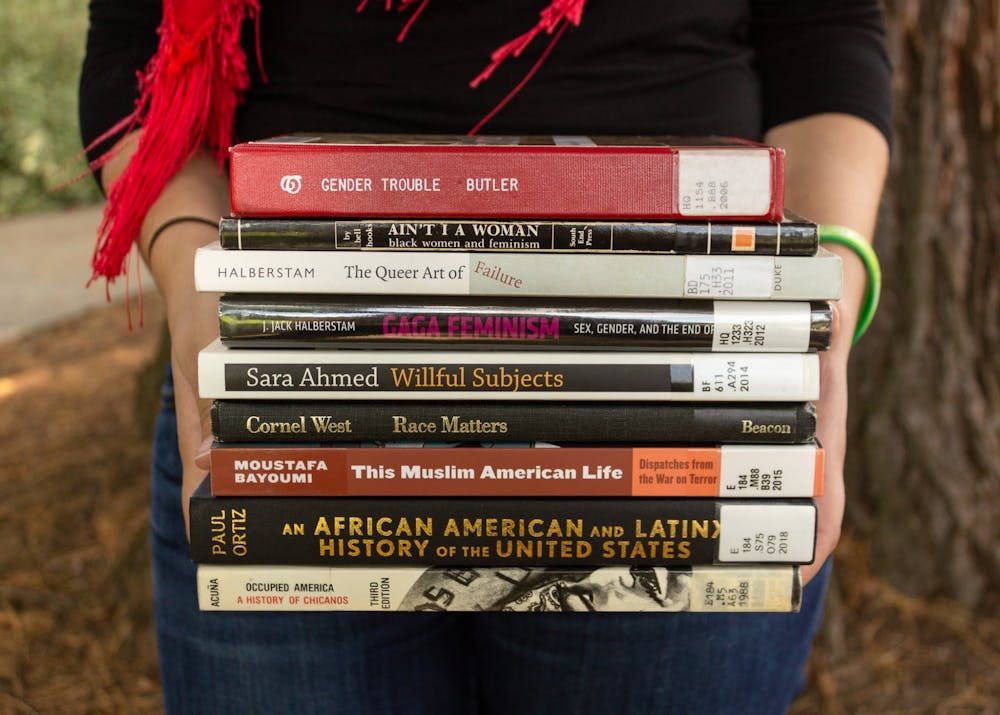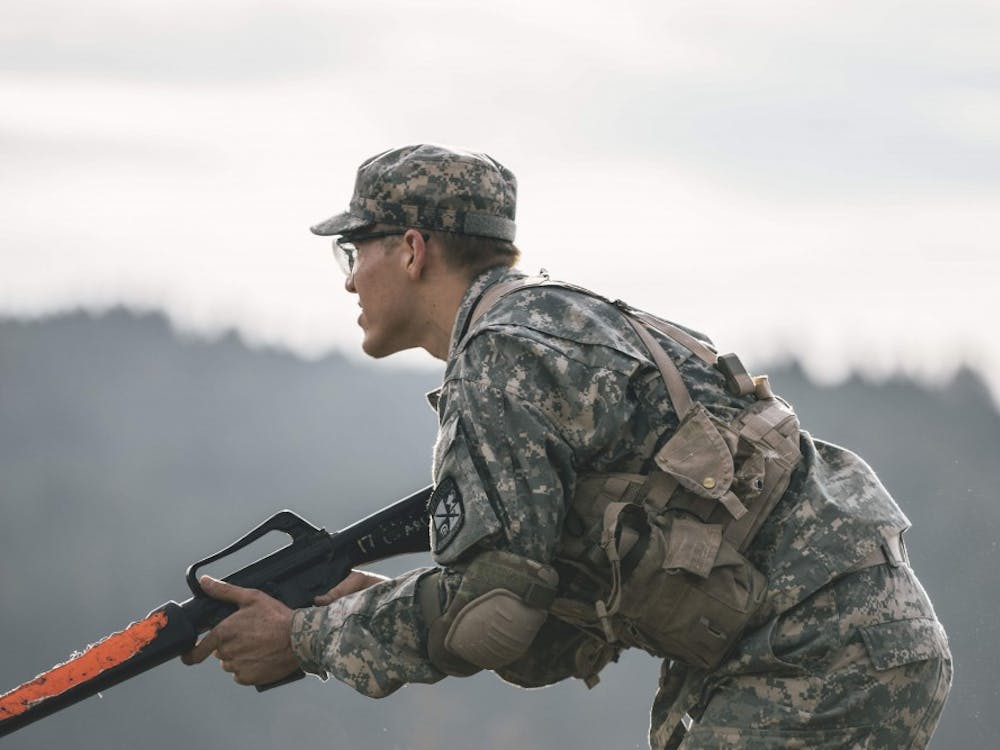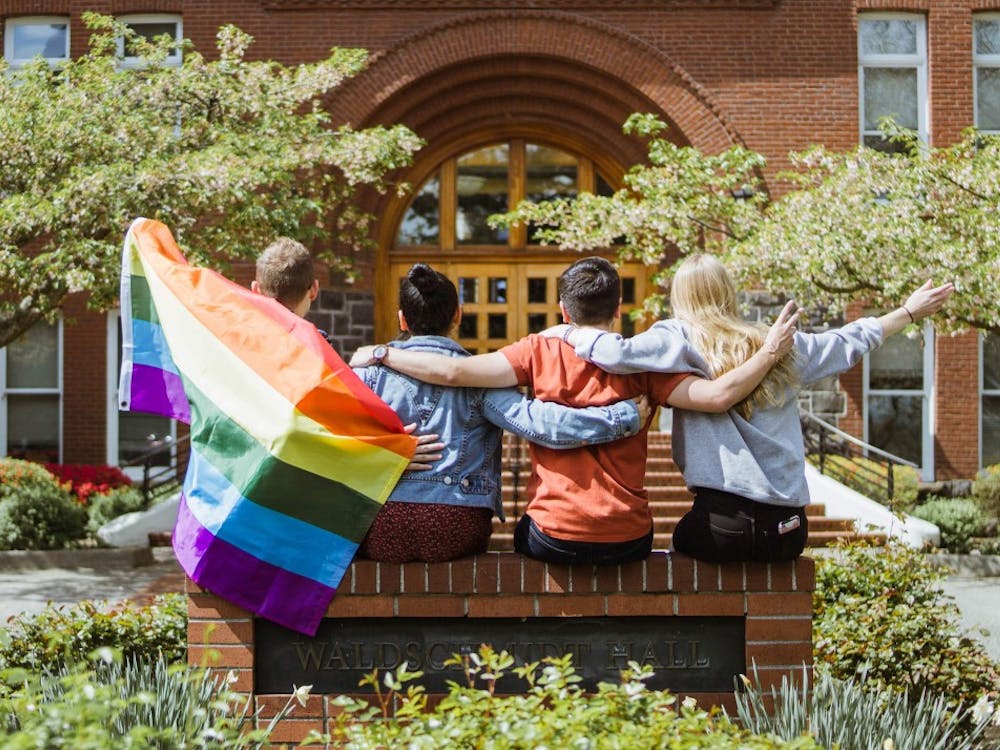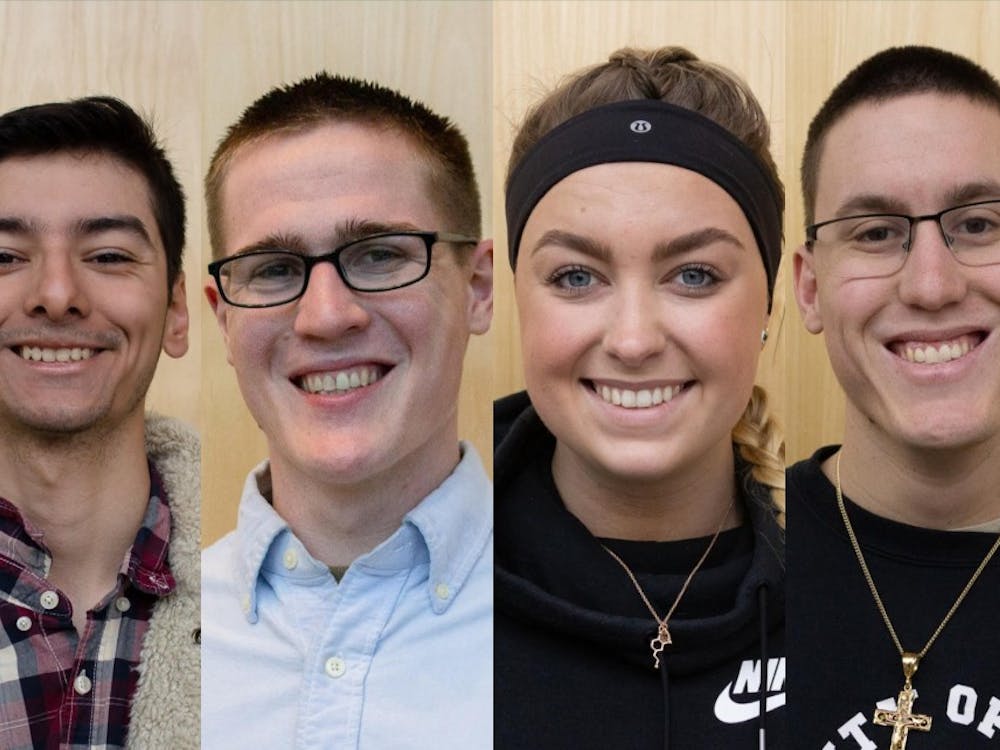Two new majors — gender and women’s studies, and ethnic studies — could join the College of Arts and Sciences (CAS) in the next few years. If the proposals are developed and approved, these additions would diversify the CAS curriculum options.
Gender and women’s studies has been a minor at UP since 2016, according to program co-director and German studies professor Alexandra Hill. There’s no ethnic studies program at UP, and CAS is searching for a faculty member outside of UP to develop a major proposal, explained CAS Dean Herbert Medina.
Developing a major is usually at least a two to three-year process that coordinates different groups in the university, including the dean's office and the Academic Senate, Medina said.

Dean of the College of Arts and Sciences Herbert Medina says both majors are in very early stages of development.
“We are really just in the beginning stages of this process (for both majors). I wouldn’t want students to come to the dean’s office and say, ‘Give me the forms to fill out so I can major in this,’” Medina said. “I hope that we will be in two to three years down the line, but we’re not quite there yet.”
The structure of these majors could parallel that of environmental studies, in which there's a core group of faculty along with affiliated faculty from other disciplines. A major would also not immediately mean a department, although a department would be the eventual goal, Medina said.
Several of UP’s peer institutions, including Gonzaga University, Loyola Marymount University and Notre Dame, have departments, majors and/or minors in both gender and women’s studies and ethnic studies or related fields.
Gender and women’s studies at UP is arguably further along in the process to become a major because of the program that already exists, Medina said. Hill said it graduated its first student in 2016. Now, there are 18 students enrolled in the minor, and nearly double that number of students (35) from the freshman class have declared they want to add the minor. Students have also approached the co-directors lately asking to turn the minor into a major.
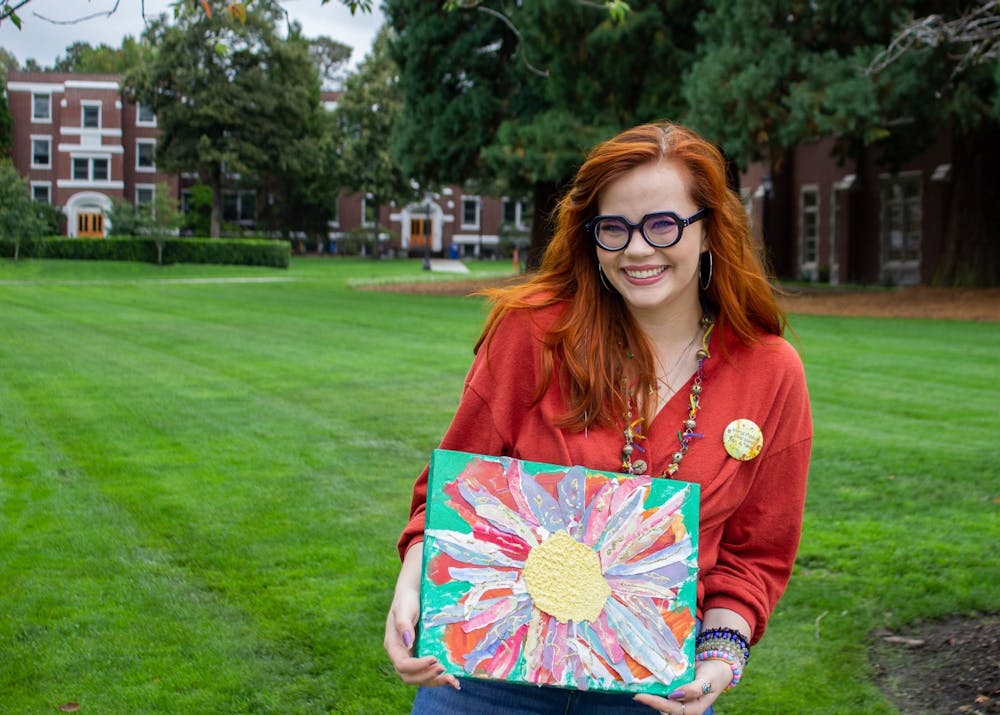
Junior Sage DeFreitas is a communication studies major and gender and women's studies minor. DeFreitas is always surprised at the number of students in gender focused courses and all people benefit from discussing these themes. DeFreitas made the picture when she was five and it reminds her to keep studying gender and the intersections of gender not only for herself but also for future generations.
Sage DeFreitas, a junior communication studies major and the co-president of UP’s Feminist Discussion Group, declared the gender and women’s studies minor her freshman year after realizing it allowed her to learn about and discuss themes she’d been thinking about since she was a child, she said.
“If we are to be a player on the collegiate level, as the university is getting more notoriety nationwide, we can’t just sit back and forget that we are severely lacking in areas,” DeFreitas said. “Having that major is just one step in the right direction for our students’ understanding that studying gender is invaluable for the education of the person, not just the mind.”
Vail Fletcher, another co-director of the program and a communication studies professor, attributed the minor’s popularity to its interdisciplinary approach and its relevance to students’ lives, emphasizing that 60% of UP students identify as female.
“There’s this very deep sociocultural need to focus specifically on women and gender in an academic context, to tackle these larger intersectional challenges,” Fletcher said. “Gender and women’s studies is something people live individually, every day. And a lot of people also suffer as a result of these restrictive ways of thinking about women and gender.”

The two new programs that could be arriving on The Bluff would address themes of gender, race, class, and sexual orientation, among others.
Sophomore sociology major Francisco Franco is in Sociology of the Family this semester, a course for the gender and women’s studies minor. He notes the course isn’t accompanied by the boredom and dread many students associate with some three-hour classes.
“All the subjects that were talked about during that three-hour, I was just hooked on it, and it was the only thing I could really focus on the entire time. It was like a dream,” Franco said. “It’s fun to learn more about yourself while you’re taking notes about it. You start to learn more about what it means to be a person and to be alive. It’s cool to find terms that you can identify with and that you can relate to, to help you form your own identity.”
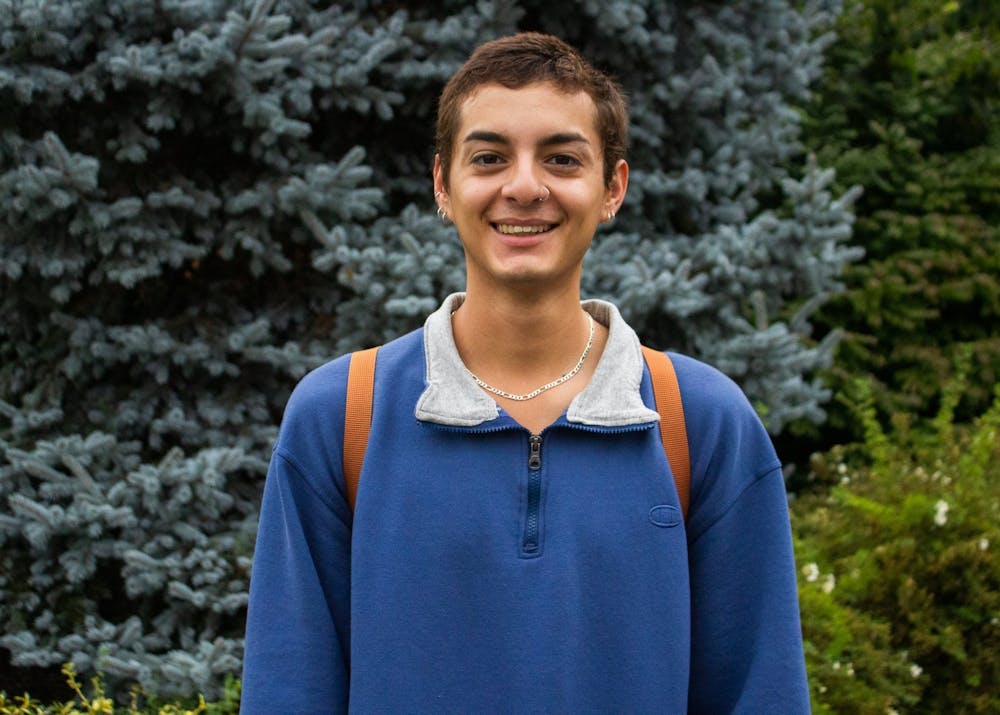
Francisco Franco is a sophomore sociology major and Gender and Women's Studies minor. Franco declared the minor because he likes learning more about himself and what it means to be human.
Hill also pointed to logistical considerations that have prompted Fletcher and her to consider a major. Fifty potential students in the minor could require additional sections of classes. That number could also mean more advising and overall more senior capstones for the co-directors to grade. As the minor grows, it also needs more funding, Hill said.
“There’s a sense of solidarity, but those people, they don’t have checkbooks,” Hill said.
Fletcher also connected the centennial of women’s suffrage and the progress and challenges since then to why she considers now an opportune time for a GWS major.
“We see a lot of systemic challenges for women to be fully equal, and (when we look at) giving students the tools and the critical thinking to be part of this world, I just can’t imagine how gender and women’s studies as a formal department or major is not an important part of that education,” Fletcher said.

Professors Alexandra Hill (left) and Vail Fletcher (right) are the co-directors of the Gender and Women's Studies program.
An ethnic studies major will hopefully be available to declare in the fall of 2021 or 2022, Medina said, though he recognizes all of the work and time that will have to be invested into the program.
Eduardo Contreras, assistant provost for International Education, Diversity and Inclusion, has supported the search committee looking for an ethnic studies professor. He explained he values the field because it provides a multidisciplinary analysis of ethnicity and offers representation in the curriculum he has heard students ask for repeatedly.
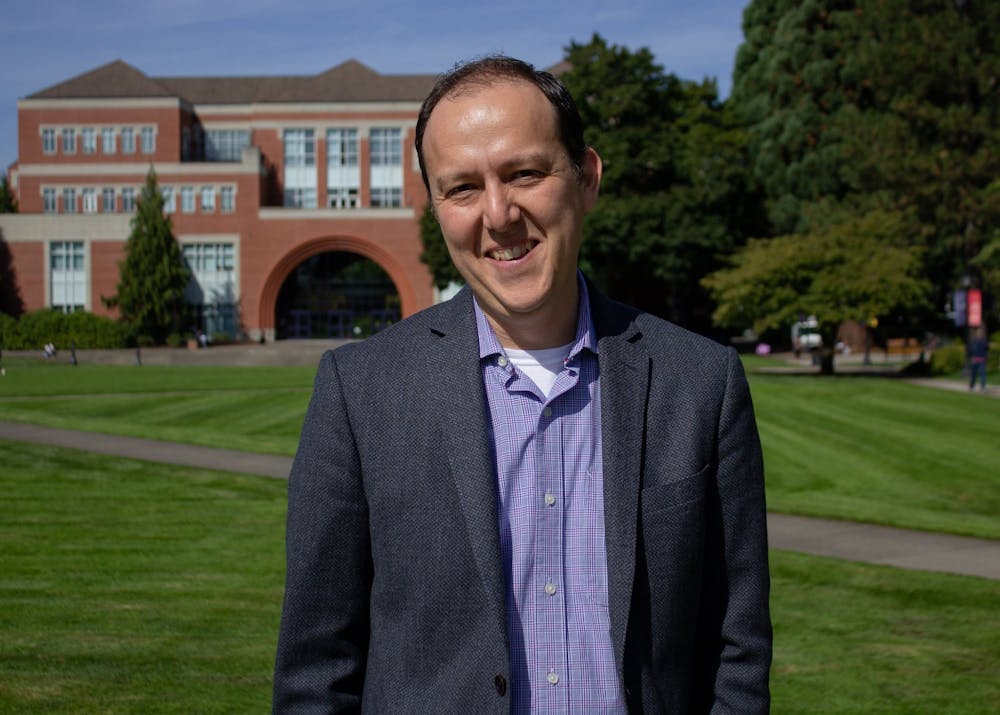
Assistant Provost for International Education, Diversity and Inclusion Eduardo Contreras spoke with Dean Medina over the summer to start the search for an ethnic studies faculty member.
Medina highlighted that 47% of this year’s freshman class is students of color, compared to 39% the previous year and 16% from 15 years ago.
“It’s especially relevant now because the number of students of color that are coming to the University of Portland has increased significantly,” Medina said. “We want to make sure that we are offering content knowledge about the experiences of these groups.”
Rosie Ith, a sophomore economics major and international student from Cambodia, explained that she believes an ethnic studies major would fill some curricular gaps at UP.
“There’s a need for this intercultural or more diverse component,” Ith said. “Ethnic studies will give students the opportunity to take courses that help them grow as global citizens.”
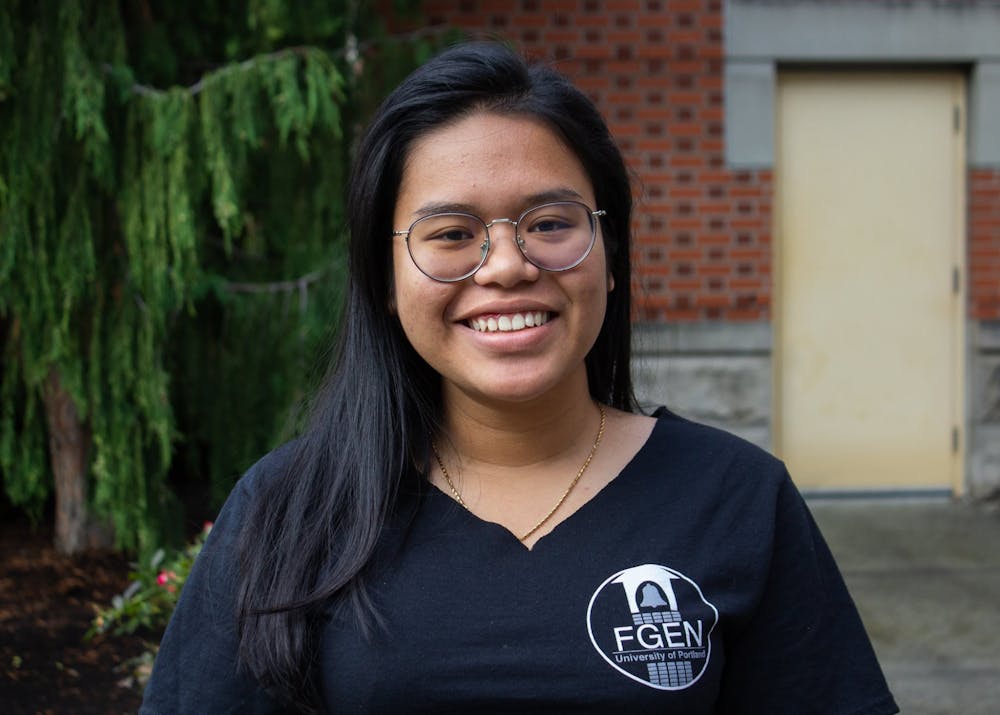
Sophomore economics major Rosie Ith is interested in the ethnic program to expand on her own intercultural knowledge as well as its potential to bring more diversity to campus.
Junior marketing major and diversity collaborator Stephen Laphen would also welcome the major, noting that it could attract a more diverse crowd of students and professors to UP.
Medina emphasized that searches and processes in higher education advance slowly and must account for budgetary implications, but that he is optimistic about the prospects of both majors and sees them supporting the mission of the university.
“Being a Catholic institution on the West Coast of the U.S. really puts us in a position to ask challenging questions, and to study things in ways that can really further ethnic studies and gender and women’s studies,” Medina said. “I don’t see why we can’t be a leader in these disciplines in ten years or so.”
Dora Totoian is a reporter and the Opinion editor for The Beacon. She can be reached at totoian20@up.edu.



